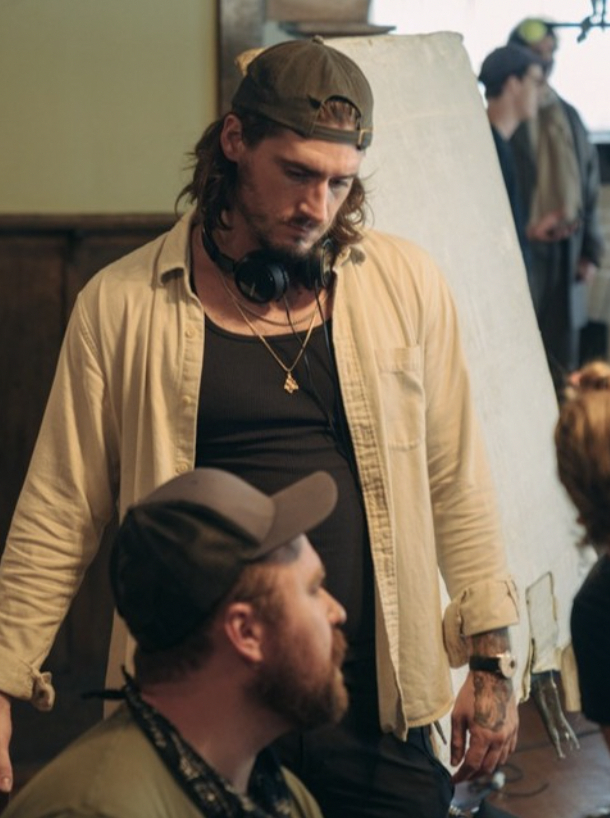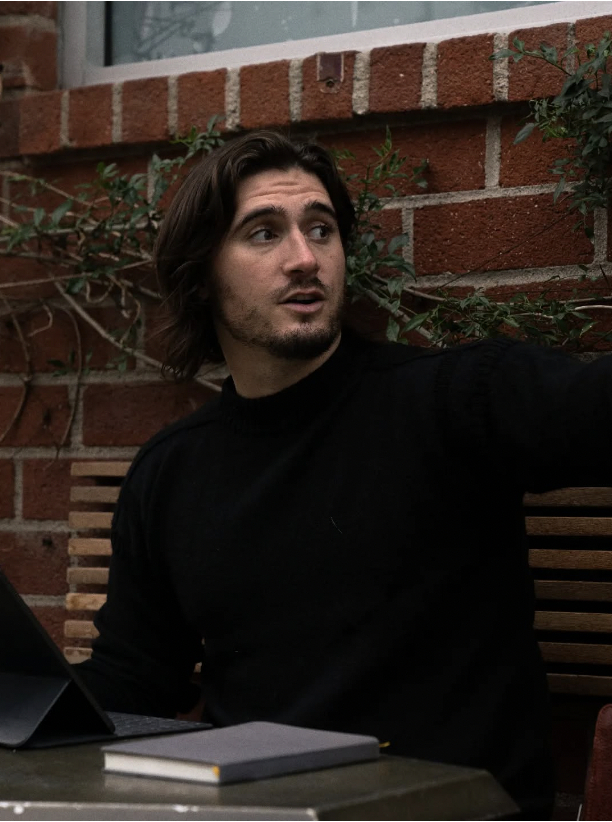We caught up with the brilliant and insightful Jacob Matthew a few weeks ago and have shared our conversation below.
Hi Jacob, thanks for joining us today. To kick things off, we’d love to hear about things you or your brand do that diverge from the industry standard.
For the first century of the film industry, revenue was built on a singular transaction model—whether it was a movie ticket, a DVD purchase, or merchandising. Each film had the potential for exponential profitability, as a single hit could generate revenue far beyond its initial cost through multiple sales channels. This system created financial upside not just for studios but also for filmmakers who shared in backend profits. However, the rise of streaming disrupted this model entirely, shifting the industry towards a subscription-based structure where consumers pay for access to a vast library rather than individual films.
While streaming has made content more accessible, it has also capped the revenue potential for individual films. Instead of a film continuing to generate income based on audience demand, it now earns a predetermined licensing fee or contributes to platform engagement, limiting its ability to scale financially. This fundamental shift has weakened the traditional financial waterfall, making it harder for filmmakers to participate in the long-term success of their work. At Booklight, we are addressing this challenge by leveraging direct-to-consumer (D2C) websites to build a modern e-commerce TVOD window, where audiences can purchase rentals and merchandising after a film’s theatrical release.
By giving audiences a direct way to support films they love, we are restoring the profitability model that once made the film business so powerful. Our approach allows revenue to continue growing beyond the initial theatrical run while simplifying the financial structure so that filmmakers can retain equity in their work. This means that instead of being locked into restrictive licensing deals, filmmakers have the opportunity to benefit from their films’ long-term success—just as they did in the pre-streaming era. In essence, Booklight is reimagining the economics of film distribution to better serve both creators and audiences in the modern digital landscape.

Jacob, love having you share your insights with us. Before we ask you more questions, maybe you can take a moment to introduce yourself to our readers who might have missed our earlier conversations?
My name is Jacob Matthew, and I have been an independent film producer for over a decade. My first major experience with distribution came through my work on The Minimalists: Less Is Now, a Netflix Original Documentary that was nominated for an Emmy in 2021. While the film was widely viewed and well-received, Netflix retained all intellectual property rights, meaning that despite its success, my team had no financial upside. This experience was eye-opening—it made me realize that filmmakers, especially independents, were losing control of their own work in the streaming era. That realization led me to explore new ways of distribution that would allow creators to retain ownership and share in the financial success of their films.
That journey led to the creation of Booklight, where we’ve pioneered a direct-to-consumer (D2C) model that restores financial equity to independent filmmakers. Our first major case study was the cult-following sketch show Gilly and Keeves with Shane Gillis. Despite being a relatively simple project, we were able to leverage the D2C model to generate over $1.8 million in independent revenue—all while retaining complete ownership of the IP. This success proved that filmmakers don’t have to rely on traditional gatekeepers or streaming giants to make their work profitable. Beyond revenue, our model also allows filmmakers to collect and own their own audience data—something that is typically controlled by major platforms. By having direct access to their audience, filmmakers can build stronger relationships, market their future work more effectively, and take full control of their careers.
At Booklight, our mission is to help independent filmmakers retain the rights to their own films and fight for their share of the financial upside. We believe that great films should benefit the people who make them, not just the platforms that distribute them. Through our innovative distribution model, we’re giving filmmakers not only financial control but also the ability to own their data and insights, ensuring they aren’t dependent on middlemen to reach their audience. I’m most proud of the fact that we’re not just changing the way films are distributed—we’re creating a new path forward for independent artists who want to build lasting success on their own terms.

Learning and unlearning are both critical parts of growth – can you share a story of a time when you had to unlearn a lesson?
For a long time, I believed that the way to make it as a filmmaker was simply to become excellent at the craft—work tirelessly, hone your skills, and wait for the industry to recognize your talent and finance your movies. This was the traditional path that many filmmakers followed for decades, hoping to be discovered by a studio or a major distributor. However, after my own experiences in both mainstream and independent filmmaking, I realized that this model is no longer viable. The industry has shifted, and waiting to be chosen is a losing game. The real power now lies in the ability to create, distribute, and monetize your work independently.
What I had to unlearn was the idea that filmmaking and business were separate. Today, success requires understanding both the creative and the financial side of the industry. The creator economy has built a path where artists can engage directly with their audiences, bypassing traditional gatekeepers and generating revenue on their own terms. The new way forward in film is about more than just making a great movie—it’s about assembling strong talent with built-in audiences, designing efficient budgets, raising independent capital, and building a niche community that converts into sales. By eventizing theatrical screenings and leveraging D2C platforms, filmmakers can take full ownership of their revenue streams. When done strategically, this model allows filmmakers to recoup investments and even create profitable films independently, without selling off rights to studios or platforms.
Ultimately, we need to unlearn the outdated mindset of waiting to be chosen and instead relearn how to take control of the entire process. This is not the easy path—it requires filmmakers to be both artists and entrepreneurs—but it is the only true path to creative and financial freedom. The future of independent film belongs to those who understand how to build, market, and sell their work directly to audiences. By embracing this shift, filmmakers can retain ownership of their art, control their financial destiny, and carve out sustainable careers in an industry that has long been dominated by middlemen.

How do you keep your team’s morale high?
In the modern independent filmmaking space, leadership is more important than ever. Without the infrastructure of large studios, independent producers must take on the responsibility of creating a structured, functional, and motivated team. Too often, films fail not because of a lack of talent or vision, but because the high-stress, emotionally charged nature of filmmaking leads to breakdowns in communication, morale, and overall execution. A great idea alone is never enough—success comes from a team that is aligned, resilient, and working toward a shared goal with clarity and purpose.
To build and maintain strong teams, I focus on three core leadership principles. First, creative clarity—ensuring that all creative decisions flow from the director down with as little outside interference as possible, particularly from financiers. Too many films suffer when creative control is pulled in multiple directions, so maintaining a clear vision is critical. Second, empathetic leadership—remembering that every person on set is a human being who deserves respect and should feel a sense of pride and ownership in the final product. Filmmaking is intense, but when people feel valued, they give their best work. Lastly, I instill an “us vs. the film” mentality. The team should never be at war with itself—the only challenge is making the film the best it can be. Keeping that mindset prevents unnecessary conflicts and keeps everyone focused on problem-solving rather than personal disputes.
At the end of the day, a great film is the result of a great team working in sync. Independent filmmaking is already an uphill battle, but with strong leadership, creative clarity, and a supportive environment, it becomes a challenge worth taking on. By fostering a culture of respect, vision, and teamwork, filmmakers can not only finish their projects successfully but create something that everyone involved can be proud of. Independent film thrives when filmmakers take ownership not just of their work, but of the way they lead their teams—and that leadership is what ultimately makes great films possible.
Contact Info:
- Website: https://www.booklight.co
- Instagram: @jcbmatthew
- Linkedin: https://www.linkedin.com/in/jacobmatthewproductions/
- Youtube: https://www.youtube.com/c/gillyandkeeves





